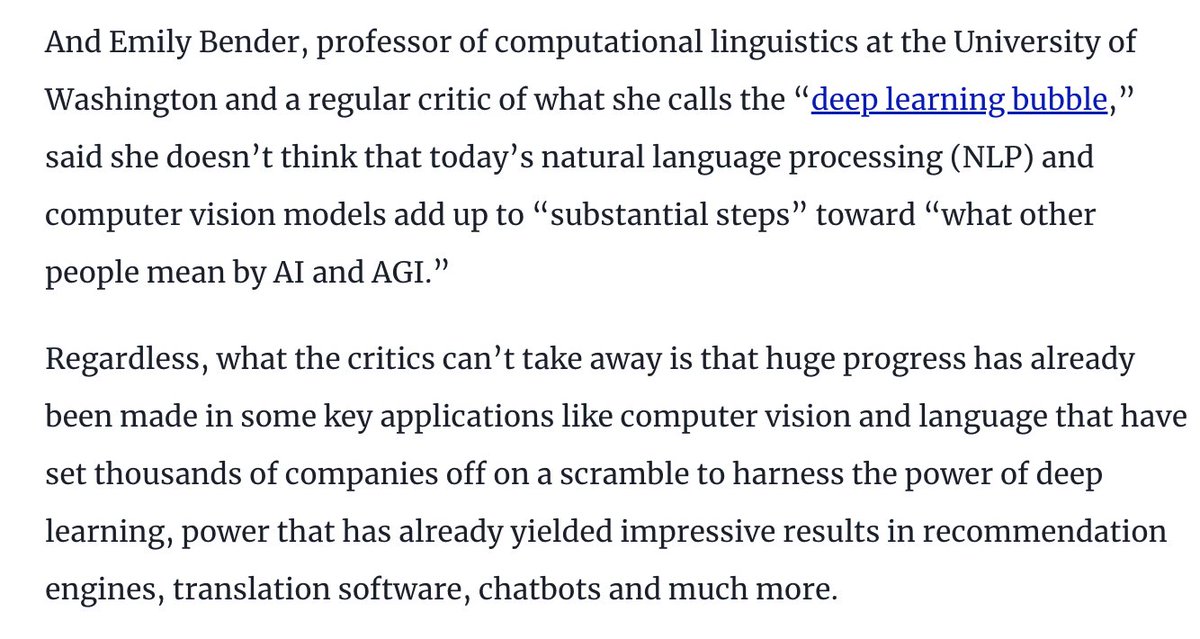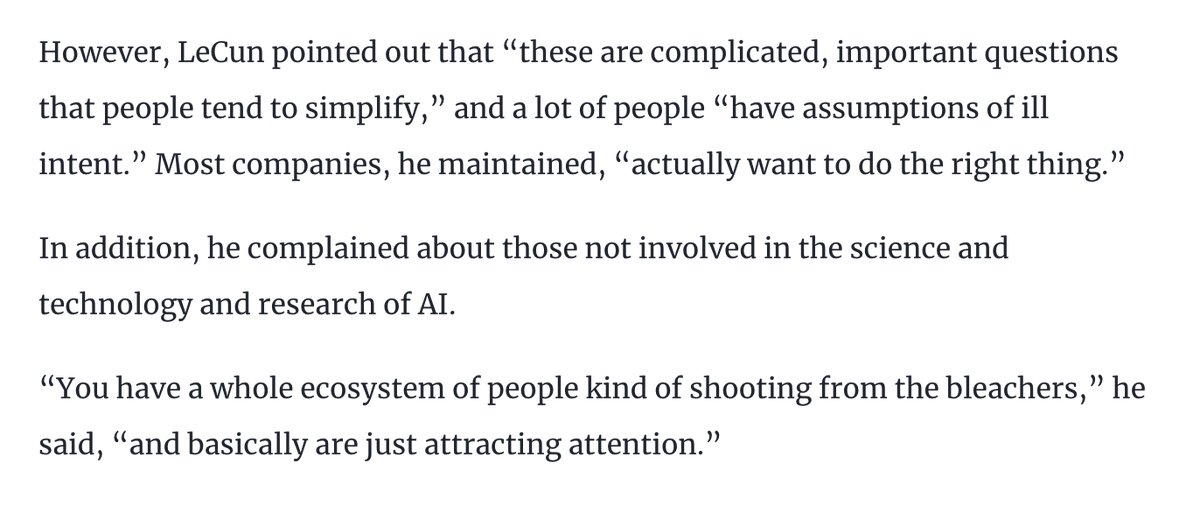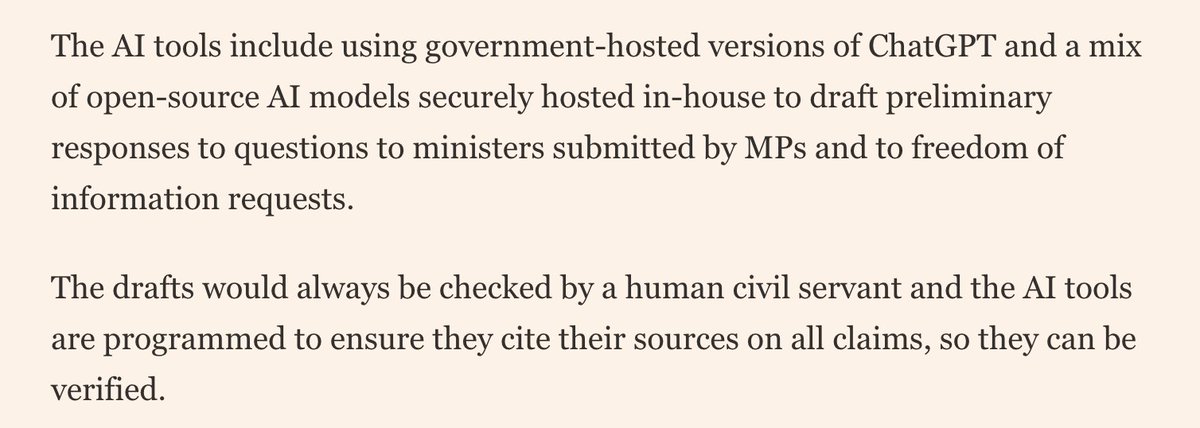*sigh* once again relegated to the critics' box. The framing in this piece leans so hard into the victims (no one believed us) persevering (we showed 'em!) narrative of the deep learning folks. #AIhype ahead:
venturebeat.com/ai/10-years-on…
venturebeat.com/ai/10-years-on…
"Success draws critics", uh nope. I'm not in this conversation because of whatever success deep learning has had. I'm in it because of the unfounded #AIhype and the harms being carried out in the name of so-called "AI".
>>
>>

"huge progress ... in some key applications like computer vision and language" --- uh "language" isn't an application, TYVM.
And I am not trying to "take away" any actual progress (e.g. improved ASR, MT). I'm only taking issue with overclaims.
>>
And I am not trying to "take away" any actual progress (e.g. improved ASR, MT). I'm only taking issue with overclaims.
>>

There are five people quoted in the article. But there are three photos: Geoffrey Hinton, Yann LeCun, and Fei-fei Li. It's a hagiography of them. Gary Marcus and I are in there as "critics" to be "dismissed".
>>
>>

I'm glad at least some of the points I was making about societal implications made it in (though I never said "gone too far", that suggests there's some coherent path here).
>>

>>


But then she gives LeCun the space to do this rebuttal (though it is not at all clear that he was shown my words; these quotes could have been in response to generic questions about "AI ethicists"):
>>
>>

This makes it sound like he thinks I'm simplifying something, if his words really are in response to mine. But even if not: scholars like Noble, Benjamin, Broussard, Raji, Gebru, Birhane, Marshall are the ones diving in and exploring the complexities!
>>
>>

And, frankly, the implication that only the people who build these things are qualified to comment on their societal implications/#AIethics shows just how naïve and *un*qualified LeCun is in this area.
Note: I'm assuming naïveté and not ill-intent. Generously.
>>
Note: I'm assuming naïveté and not ill-intent. Generously.
>>

When the leaders of the field are unable to listen to and learn from the amazing Black women scholars doing this work, is it any surprise that DEI efforts are failing?
>>

>>


It's not enough to recruit people from marginalized & otherwise underrepresented groups into the field. Without co-ownership of the relevant spaces, it won't be feasible for them to stay.
>>
>>
Google pushed out Dr. @timnitGebru and Dr. @mmitchell_ai rather than let them lead towards a more diverse work environment.
>>
>>
So, lesson learned. Just because a reporter seems (with their initial query) to be interested in writing a piece that doesn't succumb to the AI hype doesn't mean they have actually extricated themselves.
• • •
Missing some Tweet in this thread? You can try to
force a refresh







